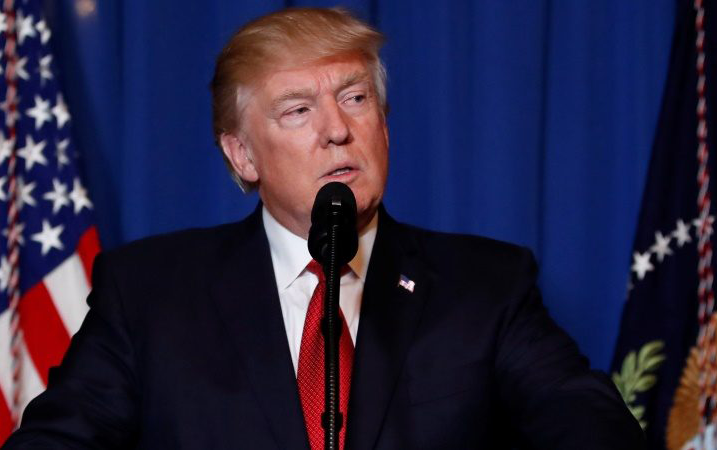The Trump White House has decided to cap refugee admissions for federal fiscal year 2018 (which began on October 1, 2017) at 45,000, a move that was signaled shortly in advance by the all-too-typical media leaks (see here and here). According to Reuters:
The figure is the lowest cap since the Refugee Act was signed into law in 1980. The United States has resettled more than 3 million refugees since then. The refugee ceiling has never been set below 67,000.
Trump issued an executive order in January slashing the number of refugees admitted to the United States to 50,0000 for fiscal year 2017, less than half the 110,000 former President Barack Obama had authorized. As of Sept. 15, the United States had taken in 52,261 refugees for fiscal year 2017.

While all of this may be true, it is also true that processing and vetting of refugees has become more problematic than ever in recent years — particularly since more refugees than ever emanate from terrorist-prone areas of the world where individuals' identities are malleable and identity cards are easily forged, counterfeited, or even prepared from fresh, but blank, legitimate government stocks taken when passport and national identity facilities are overrun by groups like ISIS or the Taliban.
The statutory caps for fiscal years 1980 through 1982 were set by law at 50,000, but for each fiscal year from 1983 onward, the yearly cap is established by the president after "appropriate consultation" with Congress, as required by Subsection (a) of Section 207 of the Immigration and Nationality Act (INA).
Subsection (e) of that same provision in the INA provides a definition of "consultation", but it is interesting to note that despite repeated reference to the requirement for appropriate consultation with Congress, nowhere does it say that the president is delimited by either floors or ceilings, and it is especially interesting that the statute does not give Congress a direct power of veto over his proposed refugee admissions cap.
More interesting yet, Clause (d)(3)(B) of Section 207 says that if the president decides that emergency conditions exist that in his view suggest he should up the statutory cap after the initial consultations, he only has to further consult with Congress "to the extent that time and the nature of the emergency refugee situation permit."
This is a substantial amount of latitude, and it provides less-than-scrupulous White House occupants ample wiggle room to declare an emergency and proceed to raise the original cap while sidestepping further "consultations". It's a perfect loophole by which an administration can skate through the consultative process with lip service, and a wink and a nod.
Certainly it doesn't appear that former President Obama developed any particular angst over the consultative process, and neither does it appear that anyone in Congress ever challenged his administration's shockingly high refugee admissions. According to the State Department:
In FY 2016, the Administration aims to reach the ceiling of 85,000 refugee arrivals established by the President, and in FY 2017 will strive to admit 110,000 refugees. This represents a 57 percent increase over a two-year period from the 70,000 refugees admitted to the United States in 2015. In the current fiscal year, more refugees are likely to be resettled to the United States from the Near East/South Asia region than in any year on record. (Emphasis added.)
The dramatic increases — from some of the most unsettled regions of the world — took place despite a backdrop in which there were a number of terrorist-related incidents in the United States, Europe, and elsewhere involving refugees, and notwithstanding a public clamoring for lower numbers and better vetting procedures.
Apparently, though, President Trump's decision caught congressional leaders off-guard. Senate Judiciary Committee Chairman Chuck Grassley (R-Iowa) and Ranking Member Dianne Feinstein (D-Calif.) issued a statement, saying in pertinent part:
We are incredibly frustrated that the annual consultation for refugee admissions, which is required by law, was finalized just one day in advance. It is simply unacceptable to read in the press that the administration had reached its decision on the refugee cap before the mandated meeting with Congress had even been scheduled. Since August, our offices have made bipartisan requests to the State Department on this meeting. Congress and the law require real engagement on this important subject. An eleventh-hour meeting to check a legal box is not sufficient."
The senators have a fair point. On the other hand, there is every reason to maintain a healthy skepticism that other presidents have taken the consultative process particularly seriously. This is glaringly obvious with former President Obama, as is evident from his record. His conduct, especially as regards various "executive actions" on immigration, shows that he is not one to have let the requirements of Article I (giving lawmaking power to Congress, and only to Congress) weigh heavily on his mind or his conscience. And yet Congress never chose to call him on that point — such as by legally challenging his DACA and DAPA programs — leaving that, instead, to the states to pursue.
Even so, I can well imagine the senators' frustration. It is exactly the same frustration, I would bet, that state governors have felt over the years when they have had refugees, asylees, and even "resettled" family units of illegal border crossers dumped into their local communities with little or no consultation, even though that too is required by law.
So when the inevitable hearing is called to summon various federal officials to the woodshed for their consultative sins, perhaps the senators will think also of how effectively shut out of the process state leaders have been, even though it is their communities and their health, education, law enforcement, and social safety nets that are most affected by these refugee admissions.
